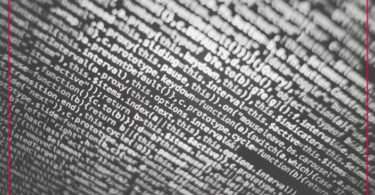In this article, Reporters Without Borders (RSF) has compiled 40 online resources to help journalists deepen their knowledge and keep up-to-date on digital security.
Nowadays, journalists cannot avoid using digital tools in their work or their private lives. Reporting involves wielding various digital devices, softwares and apps that can tremendously facilitate the reporting process, but that also present risks. This is the reason why it has become indispensable for journalists to have a comprehensive understanding of digital security and the capacity to update their knowledge in this ever-changing field.
As our technology has advanced, so has the ability of governments and other third parties to surveil, harass or censor journalists. Meanwhile, national and international laws have not sufficiently adapted to protect journalists and their sources.
Journalists must allocate time to integrating basic digital security measures into their everyday life. The following list of references offers a variety of useful resources and links designed to help journalists create their own customisable digital literacy plan.
1. General resources on digital security
- Digital Security — Global Investigative Journalism Network: Guide to digital security for journalists, from basic recommendations to in-depth guidelines.
- Guides and Training — Freedom of the Press Foundation: Web page containing various security training guides for journalists, from harassment preparedness to phishing prevention.
- Digital Safety Kit — Committee to Protect Journalists: Frequently-updated guide to protecting oneself and one’s data from digital threats.
- Digital Security Toolkit for Journalists and Bloggers — Salama: Collection of links to recommended digital security resources such as email encryption tools and antivirus software.
2. How to identify digital threats
- Your personal Threat Model — RSF — RSF’s guide to creating a threat model, which helps identify digital threats according to one’s situation and suggests solutions.
- Threat Modelling Basics — Electric Frontier Foundation — Detailed guide to threat modelling and how journalists can create their own customised threat model.
- Threat modelling activity handout — Electric Frontier Foundation — Printable threat modelling activity sheet in both English and Spanish.
- Lesson plan for threat modelling — Freedom of the Press Foundation: Sample curriculum on threat modelling that includes readings, activities and discussion prompts.
3. How to browse the web safely
Secure browsers — These browsers have built-in security systems that allow users to surf the web privately:
-
- Tor — an encrypted internet network and browser that allows users to browse the web undetected while getting past firewalls.
- DuckDuckGo — a search engine that allows unfiltered private web searching without trackers.
- Brave — a secure web browser that blocks ads and trackers.
VPN — A virtual private network (VPN) hides a person’s internet traffic, metadata, and activity while browsing the web.
-
-
- Why journalists should always have their VPN turned on — RSF: Article on the importance of using a virtual private network for journalists.
- How to escape from the prying eyes of ISPs — RSF: Article explaining how internet service providers (ISPs) may be able to spy on users, and how to prevent it.
- An in-depth guide to choosing a VPN — Freedom of the Press Foundation: Article explaining what to look for when selecting a VPN, including product recommendations.
-
Antivirus software — There are many free security solutions that can protect a person from viruses they may encounter on the web or in a phishing attempt:
4. How to safely use social media
Secure accounts access with strong passwords.
-
- Nine ways journalists can protect their password security — RSF: Tips on strengthening password security from a digital security expert.
- Video: Password security — RSF: Explanatory video on how journalists can improve their password protection.
- Online account security — Freedom of the Press Foundation: Collection of articles on how to protect accounts from hacks and phishing attempts.
- How secure is my password? — Security.org: Test about the strength of one’s password.
- Have I Been Pwnd?: Website checking if one’s email or phone information has been exposed to a data breach.
Limit sharing information online.
-
- The dangers of journalism include getting doxxed. Here’s what you can do about it — Poynter: Article detailing accounts of journalists who experienced doxxing and tips for mitigating the risk of a doxxing attempt.
- Google, Meta/Facebook, Twitter, Wikimedia, and WordPress transparency reports to know how social platforms use one’s information.
Be aware of online harassment on social media platforms
-
- How to respond appropriately to online hate speech — RSF: Tips for dealing with online hate speech.
- Preparing for online harassment — Freedom of the Press Foundation: Collection of resources to help journalists prepare for potential online harassment.
- Using online platforms safely as a journalist — Committee to Protect Journalists: Tips on safely using social media for journalists.
5. How to safely communicate online
Messaging apps. Journalists are recommended to use end-to-end encrypted messaging apps such as WhatsApp, Signal, Telegram, Session, but never use known government-monitored apps such as WeChat.
-
- Why journalists should use apps with end-to-end encryption — RSF: Guide to end-to-end encryption and how it protects messaging data.
- Journalists should use Signal to protect themselves and their sources — RSF: A cybersecurity expert recommends a safe messaging app.
- Element, a decentralised alternative to messaging apps — RSF: Article displaying recommendation for using Element, a unique, open-source and secure messaging app.
- Tech expert: journalists must be aware of the dangers of metadata — RSF: Explanation of the threat posed by metadata and how journalists can protect themselves.
- How journalists can develop secure communication in the age of the Internet — Knight Center for Journalism in the Americas — Interviews with experts on how to safely share information in the digital age.
- A journalist’s guide to online anonymity and secure communications — Security Made Simple — Recommendations for tools and resources journalists can use to surf the internet anonymously and communicate securely.
Email services. Tech experts recommend that journalists encrypt emails to protect their data and communications.
-
- ProtonMail vs Tutanota: which secure email software should journalists use? — RSF: The pros and cons of using certain encrypted email services.
- How to identify and prevent phishing scams — RSF: Article explaining different types of phishing attempts and how to prevent them.
- How journalists can encrypt their email — Poynter: Collection of tools that help journalists encrypt emails and messages.
- Encryption and Operational Security for Journalists — Github: List of encrypted browsers and messaging and email services.
Recording and transcription tools. Journalists should avoid using automated transcription tools for sensitive interviews.
-
- My journey down the rabbit hole of every journalist’s favourite app — Politico: Article about the potential security risks of using Otter.ai for transcription.
- Transcription tools — Journalist’s Toolbox: List of common transcription tools for journalists.
- How secure are journalists’ favourite transcription tools? — Freedom of the Press Foundation: Article on popular transcription tools and the potential risks of using them.





